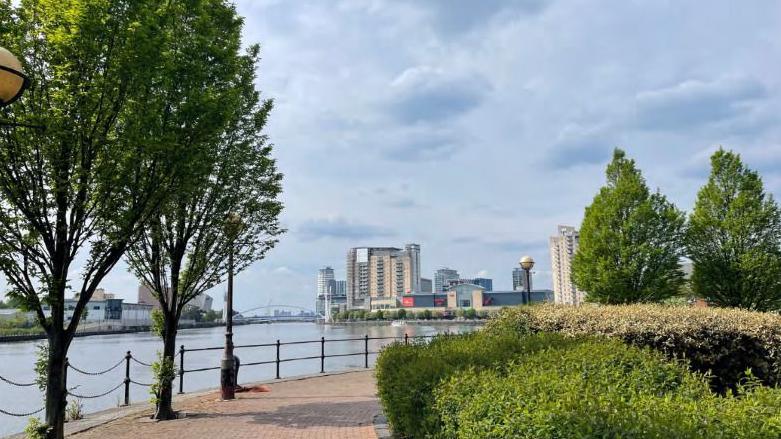Looking back on 50 years of city's famous docks
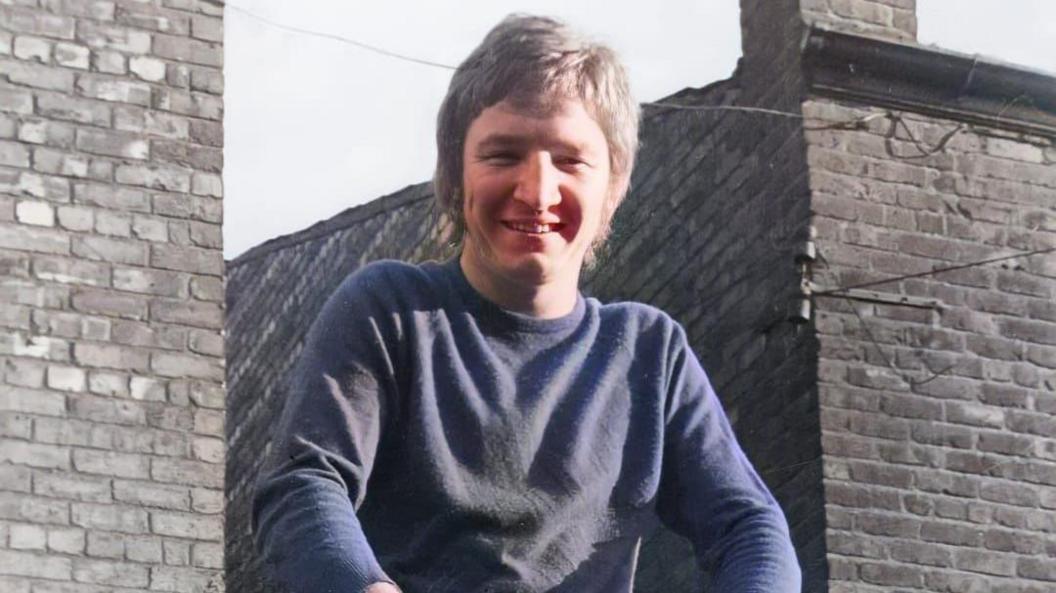
Mike Sweeney pictured in the summer of 1969 when he was 21
- Published
From docker to DJ, BBC Radio Manchester presenter Mike Sweeney first started working on the docks in Salford in his early 20s. Fifty-five years later, he still has the same commute.
"I was 22 when I started working as a docker – and I'm still here today at BBC Radio Manchester playing tunes on the wireless," he said.
Sweeney told how he has witnessed first-hand the transformation of the canal-crossed land, originally known as Manchester Docks, from industrial heartland into the bustling Salford Quays of today.
He has taken a trip down memory lane as The Lowry theatre – one of the many developments in the area – marks its 25th anniversary.
"I did everything from making the tea to laying railway track," said the veteran broadcaster, who presents his mid-morning show from Monday to Thursday.
He was based at Mode Wheel Locks and remembers playing the card game crib at lunch and would "brew up" in a tin can.
"Cargo from all over the world sailed into here from Liverpool," he said.
"It was a sight to behold. But even then I could tell it was the beginning of the end.
"The new container ships were too big to sail down the canal and by the 1980s it had all gone."
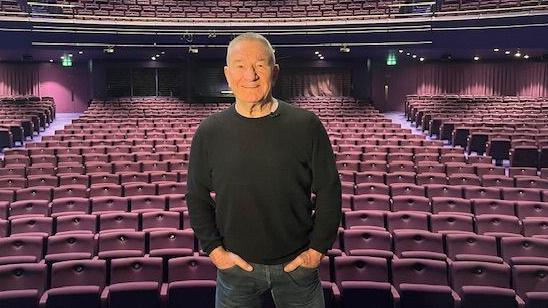
From laying railway lines to appearing at The Lowry - Mike Sweeney has always had a link to the docks at Salford
Built at the end of the 35-mile (56 km) Manchester Ship Canal, the docks were opened in 1894 by Queen Victoria.
Although the main cargo was more local cotton, grain and timber, commodities were brought from around the world, including tea, fruit, live and frozen cattle, lard, oil, petroleum and sulphur.
Exports included textiles, machinery, cars and locomotives, thanks to Manchester's huge industrial base.
However, the shipyards eventually wound down and traditional industry declined, making way for a new era for the docks, which are now home to flats, shops, bar and restaurants and a thriving media hub.
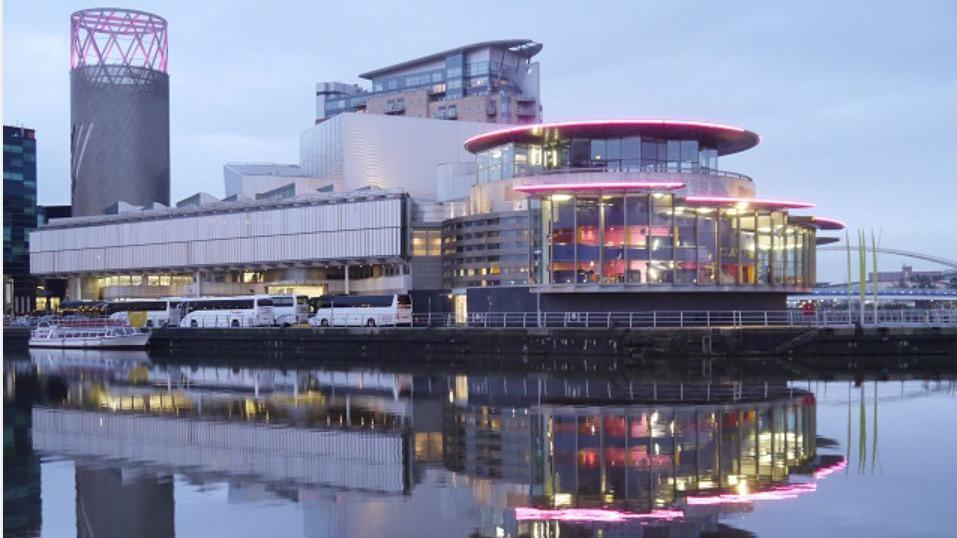
The Lowry theatre is situated on the waterfront in Salford Quays
Jonathan Schofield, who is a Blue Badge Tourist Guide, said the construction of The Lowry was pivotal in that transition.
"The thing about the Quays, it's not like Albert Dock in Liverpool, they're not Grade-I listed structures," he said.
"They were thrown up basically, quite temporary in some respects.
"The whole site was cleared and it became an enterprise zone. There were tax incentives for people to come here.
"And it needed two landmark buildings here.
"The first being The Lowry 25 years ago, which then motivated and put in place other big decisions such as bringing the Imperial War Museum North on to the Trafford side rather than the Salford side."
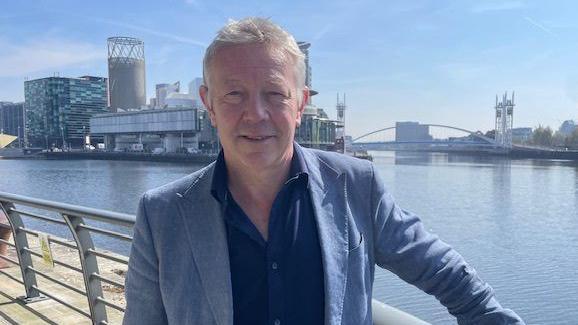
Jonathan Schofield said The Lowry attracted more development in the area
Sweeney said he never imagined that he would still be working on the same site all these years later – albeit in a very different job.
"Five years ago, I was live on the stage at The Lowry," he said.
"If you'd have told me when I was a docker that I'd be here 55 years later, I'd have been absolutely amazed."
Get in touch
Tell us which stories we should cover in Greater Manchester
Listen to the best of BBC Radio Manchester on Sounds and follow BBC Manchester on Facebook, external, X, external, and Instagram, external. You can also send story ideas via Whatsapp to 0808 100 2230.
Related topics
- Published28 March 2024
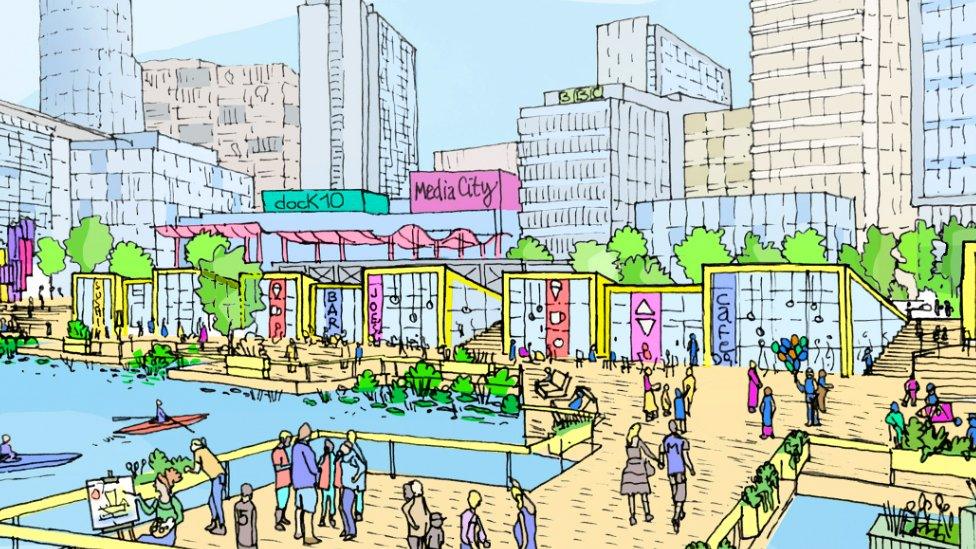
- Published10 April
